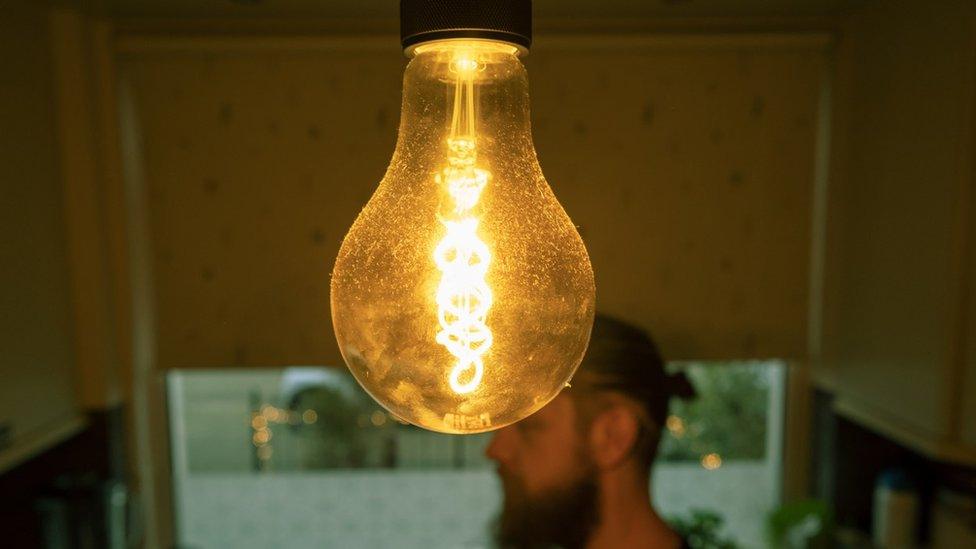NI business energy bills to rise under grid upgrade plans
- Published

The withdrawal of support will add hundreds of pounds to some household bills
Businesses in Northern Ireland face paying more for their electricity to cover the costs of upgrading the grid.
The Utility Regulator has proposed that the grid owner, NIE Networks, should spend £2.21bn between 2025 and 2031.
Grid costs account for just under 20% of a customer's overall electricity bill.
The regulator said this would mean large energy users would see this part of their bill rise by between 11% and 19%.
Small businesses can expect an increase of 3% to 9%.
Households are unlikely to see an increase in overall energy costs.
However, the regulator said the impact on households will depend on whether they adopt new technologies.
'Frankly scandalous'
Manufacturing NI (MNI) said it was seeking an urgent meeting with the regulator, describing it as "frankly scandalous" that large firms would be hit with a significant price increase.
MNI chief executive Stephen Kelly said: "The regulator's own analysis shows that local firms already pay the second highest energy bills in Europe, significantly higher than in GB or Ireland.
"This is hugely damaging to our economy and our ambitions.
"NIE Networks made an operating profit of £117m last year passing a dividend to ESB in Dublin of £37m.
"This is an eye-watering margin of 39% but even after finance costs their margin was still 25%, levels their customers could only dream of."
Grid costs account for just under 20% of a customers overall electricity bill.

Suppliers pass the cost of using the grid through to their customers
The regulator guidance said: "Based on our draft proposals, domestic tariffs will not increase due to the additional network costs as long as their electricity consumption doesn't increase and they do not adapt to any new technologies."
"For those domestic consumers who do increase their electricity usage and install heat pumps or use a home charger for an electric vehicle, their electricity costs will increase.
"However, this additional electricity cost will be offset by a reduction to their home heating and transport costs."
The grid, which consists of lines, poles and substations, is owned by NIE Networks, which makes its money by charging suppliers to use the infrastructure.
The suppliers then pass that cost through to their household and business customers.
As NIE Networks is a monopoly, its business plans have to be approved by the regulator.
Its next business plan is crucial to Northern Ireland's plan to sharply reduce greenhouse gas emissions and achieve 'net zero' by 2050.
The grid will have to be strengthened and modernised to deal with increased electricity demand and greater supply coming from renewables.
NIE Networks had asked to be allowed to spend £2.55bn on this work but the regulator's draft decision is that £2.21bn will be sufficient.
John French, Utility Regulator chief executive said: "Our decisions within this draft determination will ensure NIE Networks is fully able to support the energy transition in Northern Ireland.
"Whilst this additional investment will increase the network cost for electricity consumers, we will ensure that the transition is affordable, fair and inclusive for all."
The draft determination now goes out to consultation until March.
Related topics
- Published31 March 2023
